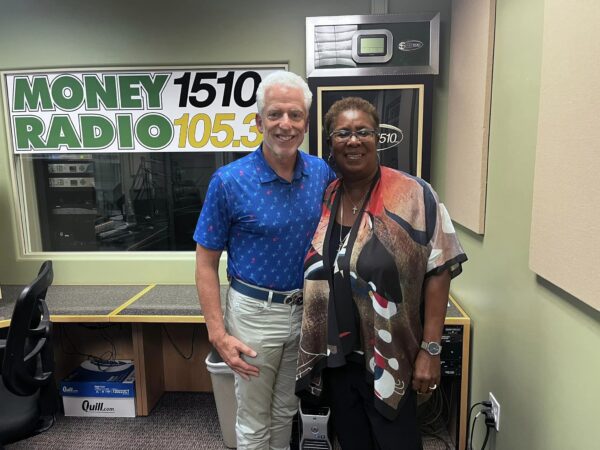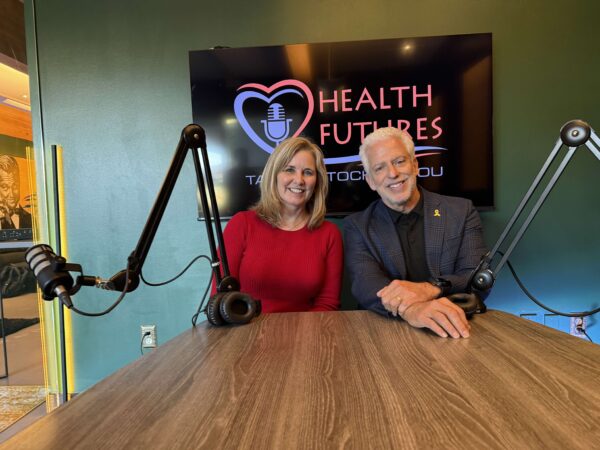As we age, our risk of falling and sustaining traumatic injuries increases significantly. Falls are the leading cause of both fatal and nonfatal injuries for those 65 and over, with over 3 million older adults visiting emergency rooms each year due to fall-related injuries. However, there are steps we can take to reduce our risk of falls and minimize injuries if they do occur.
Bob Roth had the pleasure of hosting Dr. Alicia Mangram, trauma surgeon and founder of G60 Program, a new multidisciplinary care approach for patients 60 years and older. She has over a 100 publications, peer reviews, presentations, book chapters, case reports as well as lab and bench research experience. Here is what they discussed:
Full Radio Show Interview Here: https://www.youtube.com/watch?v=sc66EvM1ztk
Why Seniors are at High Risk for Falls
There are several reasons why seniors are more prone to falls, including:
- Decreased strength and mobility – Muscle weakness, joint stiffness, poor balance and gait changes put older adults at greater risk of losing their footing.
- Chronic conditions – Diseases like arthritis, diabetes, heart disease, Alzheimer’s and Parkinson’s increase fall risk.
- Medications – Side effects like dizziness and drowsiness from medications make falls more likely. Blood thinners also increase the chances of serious bleeding if a head injury does occur.
- Vision changes – Declining vision, depth perception and contrast sensitivity impairs seniors’ ability to navigate their environment safely.
- Home hazards – Clutter, throw rugs, poor lighting, lack of grab bars and railings raise the chances of an accident at home.
Preventing Falls Before They Happen
While the risk can’t be eliminated entirely, there are steps you can take to help prevent falls:
- Exercise regularly – Strength training, balance exercises and moderate physical activity improve mobility, reaction times and stability.
- Review medications – Ask your doctor about potential medication side effects and interactions.
- Get vision checked annually – Update prescriptions and treat eye diseases to maximize sight.
- Make your home safer – Reduce tripping hazards, increase lighting, install grab bars and use non-slip mats in the bathroom.
- Use assistive devices – Canes, walkers and handrails provide stability and support.
- Wear proper footwear – Shoes with non-skid soles and good support lessen the chance of slips and falls.
What to Do After a Fall
If a fall does occur, it’s vital to take quick action to prevent or minimize injury. Here are important steps to take:
- Assess for injuries – Carefully check for pain, bleeding, swelling, deformities and head trauma.
- Get emergency help – If you’re unable to get up, are bleeding significantly or have signs of head/spine injury, call 911 immediately.
- Inform your doctor – Even if you feel fine, let your physician know about any falls to identify underlying causes.
- Identify fall triggers – Look at factors like medications, footwear, activity at time of fall so future falls can be avoided.
- Consider medical alert system – Wearable devices with fall detection or emergency buttons allow you to easily call for help if needed. Cypress HomeCare Solutions has introduced a passive and 24/7 Virtual Care Assistant which is free to all clients, and can detect a fall without requiring a wearable device.
Traumatic Brain Injuries and Anticoagulants
One of the most serious potential injuries from a fall is a traumatic brain injury (TBI) from hitting one’s head. This risk is greatly amplified if a senior is taking an anticoagulant or anti-platelet medication like warfarin (Coumadin), apixaban (Eliquis), dabigatran (Pradaxa), clopidogrel (Plavix) or daily aspirin. These “blood thinners” impair the blood’s ability to clot, which can cause even a minor head bump to result in dangerous internal bleeding.
According to Dr. Alicia Mangrum, a trauma surgeon, over 50% of those over 70 take some form of anticoagulant. She stresses that anyone on these medications who hits their head in a fall should be evaluated in the ER immediately, even if they feel fine. Bleeding in the brain can worsen quickly, so emergency scans and monitoring are needed to identify and treat a TBI. Ignoring minor head trauma because you feel okay could have devastating consequences.
In Summary
Falls present a substantial, but manageable, hazard for seniors. While we can never eliminate risk entirely, focused prevention and prompt response when accidents occur allows older adults to live active, fulfilled lives safely in their own homes. If you have questions or need assistance maintaining your independence, contact Cypress HomeCare today.




